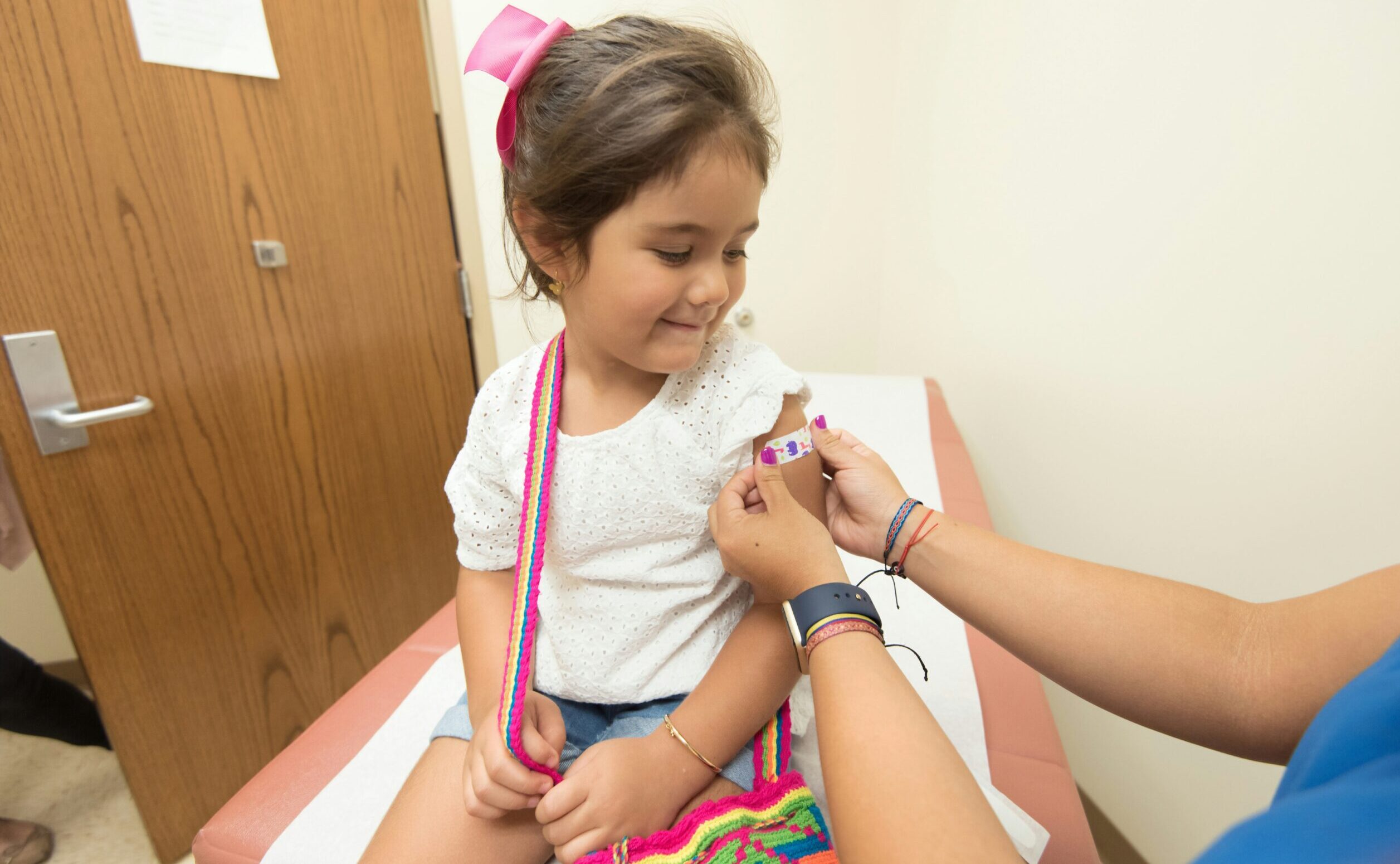With measles spreading in the community and vaccination coverage too low to stop it, a national immunisation week starting on Monday aims to raise vaccination rates.
Immunisation coverage of 95% is needed to prevent measles spread, but estimated rates in Aotearoa are much lower, and childhood vaccination rates have dropped in recent years.
The Science Media Centre asked experts what they would most like to share with someone considering vaccination.
Professor Sir Collin Tukuitonga, a director of Te Poutoko Ora a Kiwa – Centre for Pacific and Global Health, University of Auckland, comments:
“Right now, the risk of catching measles is elevated, so it’s extremely important for Māori and Pacific families to make sure their children are vaccinated. Children aged under five are most vulnerable to measles.
“Pacific and Māori New Zealanders have particularly low vaccination rates, putting them at greater risk during the current outbreak.
“In December 2024, only 70.4 percent of Pacific two-year-olds in New Zealand and 63.3 percent of Māori toddlers were vaccinated against measles, and just 76.4 percent of all two-year-olds in New Zealand.
“That rate isn’t enough to offer protection to the group.
“Measles is a fairly vicious disease – one in three children who catch it end up in hospital and some will have severe brain damage.”
No conflicts of interest.
Dr Anna Howe, Senior Lecturer in the School of Health Sciences, University of Canterbury, comments:
“The best protection against measles is to be vaccinated with two doses of the measles, mumps, rubella (MMR) vaccine.
“When discussing measles vaccination with loved ones who are unsure, listen with empathy and acknowledge how they are feeling. Share your personal reasons for vaccinating and evidence-based information from trusted sources including the Immunisation Advisory Centre and the World Health Organisation. There are many different reasons why people do not vaccinate, hesitancy is just one reason. Some people cannot be vaccinated for medical reasons which is why herd immunity is so critical, but also practical reasons limit vaccination, for example not knowing where to go for help.
“It is safe to have an extra MMR vaccination if you can’t remember whether you have had two doses already, unless you’re pregnant or immunocompromised in which case discuss with your GP. If you or anyone in your whānau born after 1969 has not had an MMR vaccine, or aren’t sure, ask your health care professional. MMR vaccines are free and available from GPs, pharmacies, and community health providers. Vaccinators are listed on Book My Vaccine.”
Conflict of interest statement: Dr Howe receives funding from the Health Research Council and Arthritis NZ. She has been involved in research funded by GSK and was the first KPS Research Fellow. She has previously worked for the Immunisation Advisory Centre as their research and policy analyst.
Dr Kuang-Chih Hsiao, Senior Lecturer in the Department of Paediatrics at The University of Auckland and Paediatric Immunologist at Starship Children’s Hospital, comments:
“Measles virus can cause severe and deadly infections. The best protection against measles is to be fully vaccinated with the MMR vaccine. Strong community herd immunity is also built through widespread vaccination. Making sure we are fully vaccinated not only protects ourselves but also our loved ones and vulnerable people in our communities.”
Conflict of interest statement: Dr Hsiao is an employee of Health New Zealand.
Professor Michael Baker, Department of Public Health, University of Otago, Wellington, comments:
For a person considering whether to get vaccinated:
“Measles is one of the most contagious infections known. Outbreaks can spread rapidly once they find people who lack immunity. The MMR vaccine is very safe and provides lifelong protection with two doses. If you’re unsure whether you or a family member has been fully immunised, now is the perfect time to check and catch up. Immunisation protects not just you, but your whole whānau and community.”
On national measles immunisation days:
“Measles immunisation weeks are a valuable way to rapidly increase vaccine uptake. Studies from the World Health Organization, UNICEF, and several countries show that focused “immunisation weeks” or catch-up campaigns can lead to measurable increases in coverage, especially in populations that are hard to reach through routine services. They are most effective when combining communication, outreach services, and active community involvement. Such weeks can heighten public awareness and reduce complacency, provide an opportunity to strengthen local systems, and mobilise extra staff and outreach activities.
“Raising coverage in this way is likely to be far more cost-effective than using outbreak responses which require considerable resources to trace even small numbers of cases and contacts.”
No conflicts of interest.
Professor Michael Plank, School of Mathematics and Statistics, University of Canterbury, comments:
“Measles is a dangerous virus that is on the rise globally. There have been several measles deaths in the US and Canada this year – these are preventable tragedies.
“Measles is here in New Zealand and it is spreading. If you haven’t been immunised there is no time left to wait – the time to get vaccinated is now.
“The MMR vaccine is highly effective at stopping people from catching and spreading measles. So getting the vaccine doesn’t just protect your own health, it also protects those around you. That includes children who are too young to be vaccinated, and people with a weakened immune system.”
No conflicts of interest.
Professor of Infectious Disease Ecology David Hayman, Massey University, comments:
“The measles vaccine is extremely safe, provides long-term protection and helps protect others around you or your child.”
Conflicts of interest: None declared.
